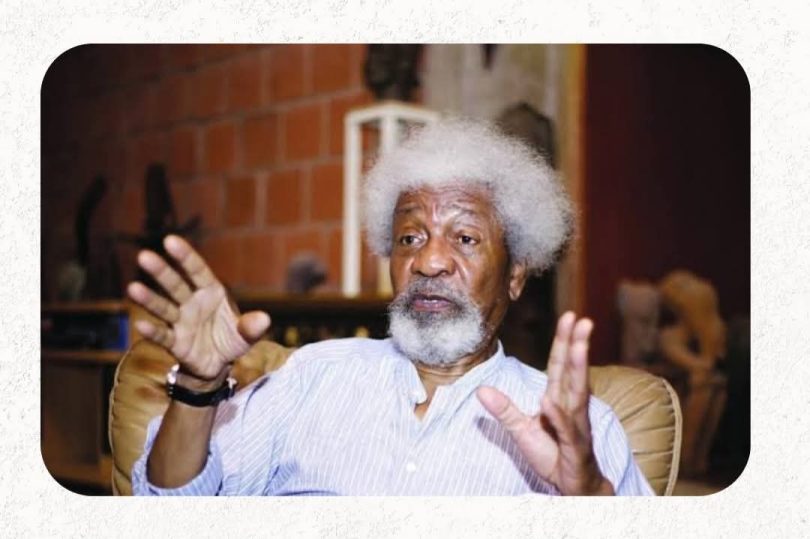Nobel laureate, Prof. Wole Soyinka, has said he will not honour an invitation by the United States Consulate in Nigeria to appear for a visa reinterview scheduled for Thursday, September 11.
Soyinka disclosed this in an interview with TheNEWS while reacting to the recent notices sent by the American Consulate to holders of B1/B2 visas, asking them to present themselves for what it described as a reinterview exercise.
The renowned playwright, who is among those invited, expressed surprise over the development, describing the letter as “strange and bizarre.”
According to him, he initially dismissed the document as either a scam by fraudsters seeking to exploit unsuspecting Nigerians or an AI-generated fake communication.
He said, “I would like to begin by stressing the fact that, for me, this is not a personal issue. I have no idea how you got to know. By the way, I also have received the letter, which at first I thought was a fake. I thought it was these scammers who sort of prey on those eager to get visas elsewhere, with the promise to deliver visas for a certain amount guaranteed.
“I thought they just picked up my name among others because they knew there was a list of those who had been invited. I thought it was a fake. I thought it was these scammers who sort of prey on those eager to get visas elsewhere, with the promise to deliver visas for a certain amount guaranteed.”
“So, at the beginning, I thought it was advance fee fraud because I had never received that kind of letter from that or any other embassy. I thought that maybe AI has been generating generic letters. It was very strange.
“So, by the time I came to terms with the fact that this letter is genuine, my mind just went to my relationship with individual ambassadors, Consul-Generals and Cultural Attachés. As you know, it’s always been a courteous relationship.”
Soyinka added that he has more pressing priorities than pursuing visas to destinations he neither desires to visit nor feels welcomed in.
“So the question of going to such an interview is totally out of consideration,” he stated.
The Nobel laureate also faulted the choice of September 11 as the date fixed by the US Consulate for the reinterview.
He described it as a sensitive date that holds deep significance for the U.S. and the rest of the world. According to him, he considers the date “a bit superstitious” and inappropriate for such an exercise, given its global association with tragedy.
He insisted that September 11 ought to remain a day of mourning and sober reflection, not diminished by what he called “ignoble distractions” like the Consulate’s visa reinterview summons.
“In addition, I happen to be a little bit superstitious of being given a significant date, not just for the United States but the rest of the world. I’m talking about 9/11. This is a day which I have always considered very critical for the United States especially. To me, 9/11 should be regarded as a day of national mourning, of atonement by the Consulate of the United States.
“They should close down offices on that day, not to keep inviting people to come and have their visas taken away. It should be a day of reflection, of serious, deep thinking in consideration of so many things.”
“I think on that day, United States should shut down completely, universally. If they don’t shut down, at least I would shut down my relationship with them on that day. Because I’m very superstitious. I’m not going anywhere near there on 9/11. I will be airborne somewhere,” Soyinka maintained.
However, Soyinka noted that while invitations from embassies are essentially invitations from governments, his response would depend on the nature of the government extending such gestures.
Citing the U.S. as an example, he remarked that the country is currently led by what he described as a “white Idi Amin.”
Soyinka said this makes him cautious about honouring such invitations, as he must also consider his personal safety.
In November 2016, shortly after Donald Trump first won the U.S. presidential election, Soyinka vowed to destroy his American green card.
He made this declaration during a lecture at Oxford University, stating that he would not be part of a country led by Trump, whom he described as a symbol of xenophobia and intolerance.
Soyinka later confirmed he had destroyed his green card because Trump won.

